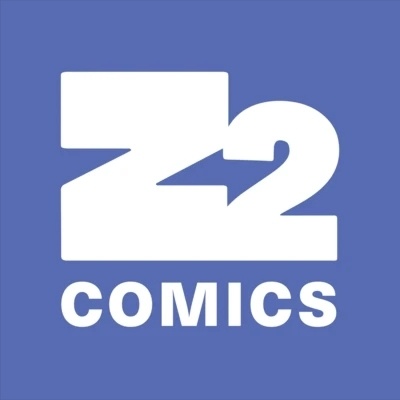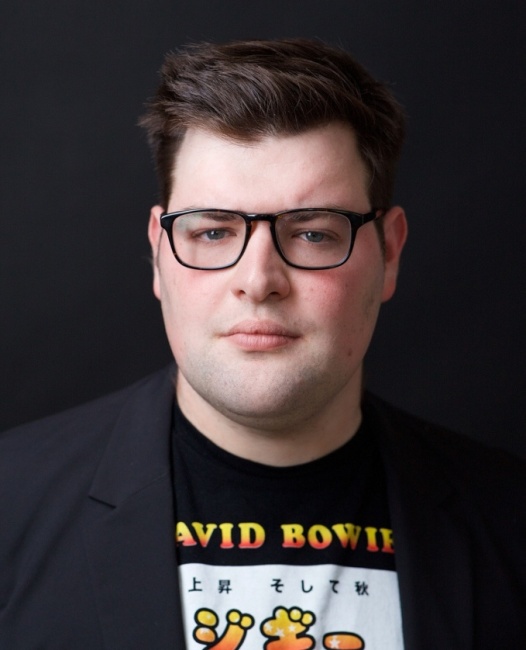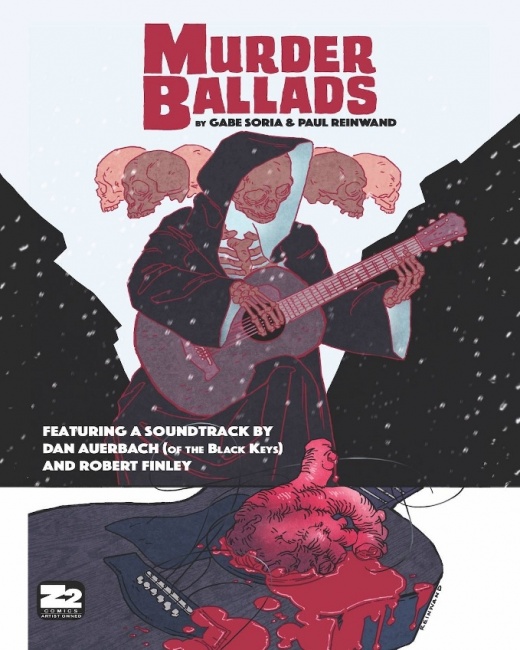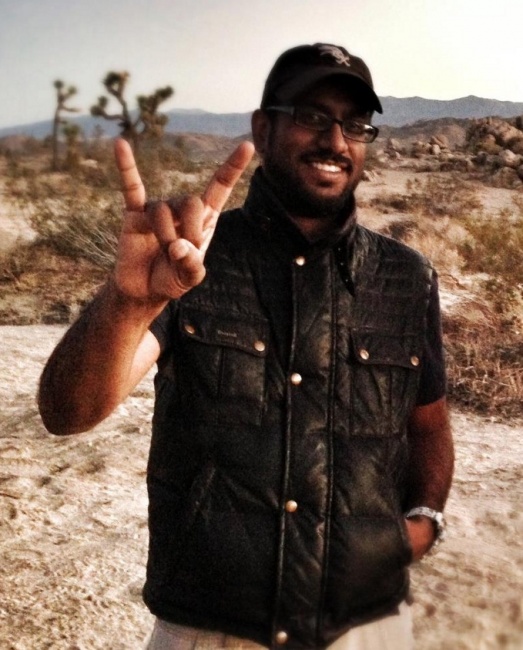Z2 Comics has had quite a year. Right at the end of 2020, it released Gorillaz Almanac, a hardcover homage to British comic annuals authorized by the British virtual band with a 75,000-copy print run of the Standard Edition and expectations for a quick reprint. Z2 also sold out 10,000 copies of the Deluxe Edition at $99.99 each direct-to-consumer from its website, and 200 copies of the Super Deluxe Edition at $199.99 (see "’Gorillaz Almanac’ First Annual from British Virtual Band").
The Gorillaz Almanac release came on the heels of Chasin’ the Bird: A Charlie Parker Graphic Nov el, which chronicled Parker’s two years in Los Angeles beginning in 1945 (see "’Chasin’ the Bird: Charlie Paker in California’ Ties to Bird 100"). The authorized release, which included a Deluxe Edition with vinyl recordings of two previously unreleased Parker tracks ($99.95), was the best-received critically of Z2’s output to date.
After releasing 12 graphic novels in 2020, Z2 plans to more than quadruple production in 2021, with over 50 releases planned, Co-Founders Josh Frankel and Sridhar Reddy told ICv2 in an extensive interview. To set up this growth, Z2 added four hires at mid-year (see "Z2 Hires Four, Including Two VPs"), and announced another five hires at year’s end (see "Z2 Adds General Cou9nsel and CFO, Senior Editor From Marvel, More").
In addition to increasing its production, Z2 plans to add direct-to-retailer distribution to its portfolio of channel options with a wholesale online store in 2021.
Z2’s model of authorized graphic novels tied to musicians, with substantial direct-to-consumer sales of up-priced editions along with standard trade editions, is allowing the company to fund its growth internally, without external capital, Frankel and Reddy told ICv2.
Z2 sees direct-to-consumer sales as a key part of its strategy, and built out its own fulfillment capacity in 2020. Co-Founder and Publisher Frankel listed two benefits from the DTC strategy. "One of the reasons we like to sell in our web store as well as in retail is just margins," Frankel explained. "If we sell a book through distribution, we get 35 percent of the cover. If we sell a $20 book at Barnes and Noble, we get $8. We sell it on our website, we get $20. If we sell a deluxe edition, we get $100. It allows us to probably make more money on less sales while the retail sales are still very strong as well. It's been a fairly solid business model for us this year."
Beyond the margins, DTC sales also allow Z2 to use digital advertising to drive sales, and provides intelligence valuable for the trade release, Frankel noted. "There are two things that are fascinating with our advertising. One, we do drive the majority of it direct to our web store. Obviously, the returns are better, but it also allows us to gather fairly good data on the back end of who is buying what, and customer data, and reallocate. When we pre-order the book, it helps us gauge the trade orders based on how it performs. It's really an important metric in that way."
Z2 can also drive traffic to retailers with its advertising if there’s sufficient volume. "Then we also will start to drive traffic to retail partners," Frankel said. "Amazon is a good one, because I'm sure you know Amazon has its own advertising ecosystem. If you goose it enough it'll take over. We're working with a bunch of other retailers. If they, for example, were to order enough copies of a variant cover we could do that as well. It just depends on how much the partner wants to buy in, and the juice has to be worth the squeeze. We aren't ignoring retail in our digital advertising lens at all."
Z2 does not sell its deluxe or super deluxe editions to trade, even when a deluxe edition, at 10,000 copies, has a print run similar to many graphic novels offered by other publishers. "We're not opposed to doing that, but here's the issue," Frankel said. "It's a $100 price point item. Let's say you're a comic book shop retailer in Kansas City; if you decide you want to go hard on a deluxe edition and you buy five, that's a $250 expenditure for five books. If you don't sell them you're on the hook. I don't want them getting burned by not being able to sell them, because one of the main reasons we're able to sell them is through our digital advertising strategy. The margin wouldn't be good enough for us to do that with a retail partner. By the way, it's not just comic shops, there's record stores we talk to."
"We don't want consumers being gouged for these and getting that reputation either," Frankel continued. "A good example: our Gorillaz Almanac. We only did 200 of the Super Deluxe Edition and they sold out within four minutes. So, the aftermarket value of those will be incredibly high. That's fine if people want to do that. Not my business. We ideally don't want retailers buying those up and then charging a markup to consumers in that way. We do want to help retailers. We also want to protect consumers."
That may change when Z2 launches its direct-to-retailer program, which it says will include favorable terms, discounts, and exclusive product to direct market retailers. The program will use the fulfillment infrastructure Z2 has built for its direct-to-consumer operations. "With the core of our business today being that direct-to-consumer sale, we have built out a fulfillment center which Sridhar oversees in Denver," Frankel told us. "We already have the infrastructure in place to do this, now it is just a matter of putting the pieces of a program together that is not only competitive, but hopefully more robust than retailers simply buying from other avenues."
We asked how Z2 distinguishes its volumes from (the many) unauthorized graphic novel biographies of musicians. "The differentiation is authenticity. We'll work directly with the musicians, so they'll put it on their social medias; they'll blast it themselves. It's a key point of our marketing strategy, too. What we do differently from the other comic companies is very heavy digital advertising. We'll advertise to those musician's fans on Facebook and Instagram, and it will always be branded as authentic. The problem is if it's inauthentic, it doesn't work. We will never do an unofficial book, because the moment you do it taints the well."
Frankel also pointed out other differences. "Let's say hypothetically you wanted to do, let's pull out a rock star, a Rolling Stones graphic novel,” he said. "If it was unofficial there's three problems. One, you can show the Rolling Stones, sure, but you can't show their logos. Those are protected because they're trademarked. For unofficial stories you have to stick to the letter of what happened for it to be a biography; otherwise, it gets a little legally nebulous. The final part is, they're not going to promote it. You're not going to have a photo of Mick Jagger holding the book and letting their fans know. That's the differentiation."
Z2 arrived at its model after trying periodical publishing. Frankel founded a predecessor company, Zip Comics, which published a Harvey Pekar graphic novel, Cleveland, with Top Shelf Productions in 2010. In 2015, Frankel and Reddy co-founded Z2 Comics and kicked off a publishing program with periodical comics. "Around 2015, Sridhar came on and we started publishing single issue comics," Frankel said. "Welcome to Showside, Legend, Carver: A Paris Story, what have you. It went really well for a while, like a couple of months, but then we started slowly seeing the issue one orders fade, even on books that got critical acclaim and did well, that we did everything right on."
"I had this dawning realization: there is too much supply in the direct market and not enough demand," Frankel continued. "There's too many indie publishers. When we started doing it, it was really just us and Black Mask, but then you had AfterShock, Vault, Scout, all of these other ones. I realize if we keep going in this model there's no tenable way to make a business. I remember telling Sridhar, ‘There's no real qualitative difference between certain single issue comics.’ If you were to go to a person on the street and pull out a Vault book, pull out a Boom book, and pull out, let's say, an AfterShock book. Scrub the logos. Most people wouldn't be able to tell the difference because they don't know those brands. The only brands that really matter in the direct market are Marvel, DC, Image, Dark Horse."
Then opportunity knocked in the form of a pitch for the graphic novel Murder Ballads, which had a soundtrack by Dan Auerbach of the Black Keys. "We had a necessitated change in our business model,” Reddy told us. "What we found with Murder Ballads was that there's a built-in audience for these bands that are loyal to their musicians, and we were giving them something new. The fans who liked the music, it was a bit of a learning curve to get people educated on a comic book. A lot of these music fans never even picked up a comic book before. We figured out our marketing and our PR to position that this is just not an ancillary piece of merch, this is an extension of the musician, and we were servicing the musician and servicing the fans. That was a real step up for us."
Z2 has found positive receptions from musicians, especially during the COVID pandemic. "COVID has really dismantled the music industry in terms of revenues that musicians can get," Reddy said. "We've provided them an outlet, one where they can be creative, but also make a good profit for themselves. They can't tour right now, and streaming only provides so much money. We're selling a physical product that they can be proud of and their fans can be proud of. They actually make money on it. It's a win-win for everybody."
Size of audience isn’t the only factor that drives sales on Z2’s graphic novels tied to musicians. "There's a variety of factors that go into how these books perform," Frankel told us. "Sometimes even mid-level titles that you may not expect could be incredibly big, even if you've never heard of the band. A good example is a band we work with called Dance Gavin Dance. They are a mid-level band, they're not huge. Their fan base is incredibly die-hard, and we've done quite well on that book: sold out of 1,000 deluxe editions in three weeks. We did very well on the DTC sales on our website, to the point where if you were to do comparable retail sales it would probably be around a 25,000 units."
Reddy explained how fan rabidity fits into the company’s strategy. "We have figured out our own little algorithm for assessing an act," he said. "Fan rabidity is one of those things. You may have a band that has a very small fan base compared to the Rolling Stones or something like that. Dance Gavin Dance has a smaller fan base, but they're incredibly rabid. We do our own research. We do the deep dive. We figure out that rabidity and that engagement. Even though on paper a band like Dance Gavin Dance wouldn't make sense, it makes absolute sense when you see what their fans are and how engaged they are."
As a final comment, Frankel explained how Z2 can expand the market for comics. "The danger we've had with the comic industry for so long is (and by the way, I say this as somebody who has read comics since they were 14 and had an $80 a week comic shop habit) that we've gotten into navel-gazing. People are trying to make books not necessarily for what people want, but for what they think they want.
"Look, comics should be a bigger industry than it is, I firmly believe that. Right now, multimedia is based on comics. Geek stuff is cool. There has to be new ways of attracting people into these shops or this industry, and also of consumer education explaining why they should take their time to read it. Comic companies aren't competing with each other. They're competing with every other form of entertainment in the world right now. If you're a 15-year-old kid of some affluence, you may have a Nintendo Switch, you have a smartphone that has TV shows, video games, YouTube, everything else.
"There's, I think, a massive appeal of comics, because it's a very unique experience. I don't think enough is being done to educate people on that experience and reach out to people outside of the normal bounds about why they should embrace that medium. Honestly, aside from the very obvious monetary benefits, I think that's one of the things we're really happy about is that we've had people who have never touched a comic before. The fact that we're sometimes the first comic or graphic novel people will read is not just good for us but good for the industry because it gets them down the wormhole, that's how you breed new consumers."
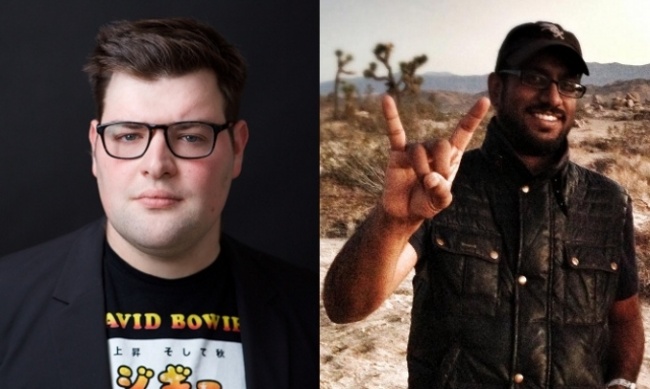
Explain How Its Graphic Novel Pivot is Fueling Explosive Growth
Posted by Milton Griepp on January 4, 2021 @ 4:04 am CT



